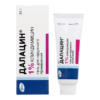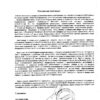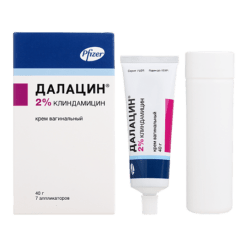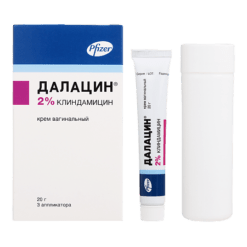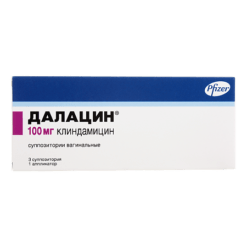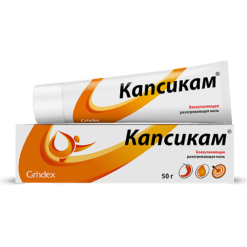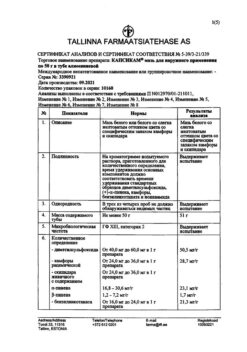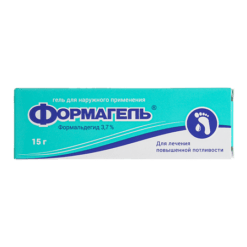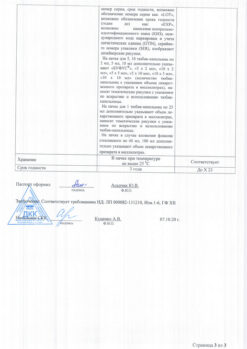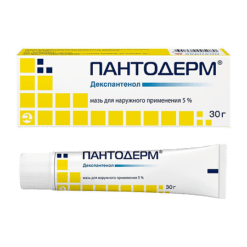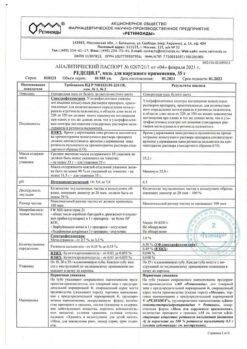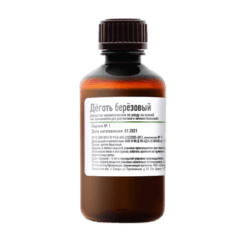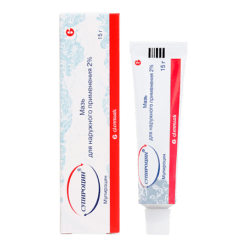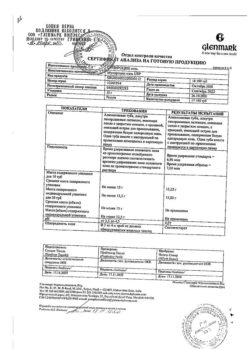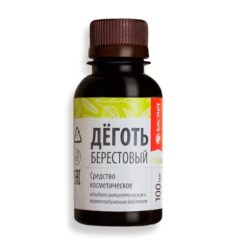No products in the cart.
Dalacin, gel 1% 30 g
€28.62 €23.85
Description
Dalacin is an antibiotic of lincosamide group for topical use.
The mechanism of action is associated with inhibition of protein synthesis in the microbial cell through interaction with the 50S-subunit of ribosomes.
It has bacteriostatic action; in higher concentrations against some microorganisms it is bactericidal.
Indications
Indications
Acne vulgaris.
Pharmacological effect
Pharmacological effect
Dalacin is an antibiotic of the lincosamide group for topical use.
The mechanism of action is associated with the suppression of protein synthesis in the microbial cell due to interaction with the 50S ribosomal subunit.
Has a bacteriostatic effect; in higher concentrations against some microorganisms – bactericidal.
Special instructions
Special instructions
With systemic use of clindamycin, severe diarrhea and, in some cases, pseudomembranous colitis may develop.
In this regard, if severe or prolonged diarrhea occurs during Dalacin therapy, it is necessary to discontinue the drug, carry out diagnostic procedures and, if necessary, prescribe appropriate treatment.
Active ingredient
Active ingredient
Clindamycin
Composition
Composition
1 g of gel contains clindamycin (in the form of clindamycin phosphate) – 10 mg;
excipients:
allantoin;
methylparaben;
propylene glycol;
polyethylene glycol;
carbomer 934P;
sodium hydroxide;
purified water
Pregnancy
Pregnancy
Adequate and controlled studies on the use of the drug in the first trimester of pregnancy have not been conducted. The use of Dalacin in the first trimester of pregnancy is possible only if the expected benefit outweighs the potential risk to the fetus.
When using clindamycin drugs in the second and third trimesters of pregnancy in dosage forms for intravaginal administration, there was no increase in the incidence of congenital anomalies of the fetus. If Dalatsin is used in the second and third trimesters of pregnancy (although no official studies have been conducted on the use of suppositories during pregnancy), then an adverse effect on the fetus seems unlikely.
Currently, there is no data on the excretion of clindamycin into breast milk during intravaginal use of Dalatsin. However, it has been found that when clindamycin is administered orally or parenterally, some of it is found in breast milk.
Therefore, when deciding on the possibility of prescribing Dalacin during lactation (breastfeeding), the expected benefit for the mother should be compared with the possible risk for the child.
Contraindications
Contraindications
Hypersensitivity to clindamycin, lincomycin or any component of Dalatsin.
Side Effects
Side Effects
The incidence of the following side effects is less than 10%.
From the reproductive system: irritation of the mucous membrane of the vulva and vagina, pain in the vagina, vaginal discharge, vaginal candidiasis, vulvovaginitis, trichomonas vaginitis, vaginal infections, menstrual irregularities, uterine bleeding, abnormal birth, endometriosis.
From the urinary system: dysuria, urinary tract infections (including pyelonephritis), proteinuria.
From the digestive system: generalized abdominal pain, localized abdominal pain, abdominal cramps, bloating, dyspepsia, nausea, vomiting, diarrhea, constipation, flatulence, bad breath, perversion of taste.
From the side of the central nervous system: dizziness, headache.
Dermatological reactions: rash, itching, maculopapular rash, erythema, skin candidiasis.
Allergic reactions: urticaria.
From the endocrine system: glucosuria, hyperthyroidism.
From the body as a whole: fungal infections, fever, flank pain, back pain, pain in the lower abdomen, generalized pain, bacterial infections, inflammatory edema, upper respiratory tract infections, nosebleeds, abnormal microbiological test results.
Local reactions: itching and pain at the injection site.
Interaction
Interaction
An antagonistic interaction between clindamycin and erythromycin has been demonstrated in vitro.
It has been established that when used systemically, clindamycin disrupts neuromuscular transmission, so it is possible to enhance the effect of peripherally acting muscle relaxants. This fact should be taken into account if it is necessary to prescribe the latter with Dalatsin.
No interactions were observed in pharmacodynamic, pharmacokinetic or clinical studies of these dosage forms.
Overdose
Overdose
When used intravaginally, absorption of clindamycin is possible in quantities sufficient to cause systemic reactions.
Accidental exposure of the drug to the gastrointestinal tract can also cause systemic effects similar to those that occur after oral administration of clindamycin in therapeutic doses. Possible systemic side effects include diarrhea, hemorrhagic diarrhea, including pseudomembranous colitis.
Treatment: if necessary, carry out symptomatic and supportive therapy.
Storage conditions
Storage conditions
The drug should be stored out of the reach of children at a temperature not exceeding 25°C. Do not freeze.
Shelf life
Shelf life
2 years.
Manufacturer
Manufacturer
Pharmacy and Upjohn Company LLC, USA
Additional information
| Shelf life | 2 years. |
|---|---|
| Conditions of storage | The drug should be kept out of reach of children at a temperature not exceeding 25°C. Do not freeze. |
| Manufacturer | Pfizer, Puerto Rico |
| Medication form | gel for external use |
| Brand | Pfizer |
Other forms…
Related products
Buy Dalacin, gel 1% 30 g with delivery to USA, UK, Europe and over 120 other countries.



